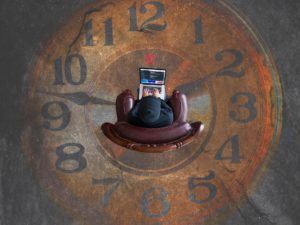
We are a reader-supported education publication. When you buy through links on our site, we may earn an affiliate commission to help us keep providing content.
Whether you like it or not, studying is part of being a college student. Therefore, it’s wise to develop effective study habits and techniques that will help you succeed. Luckily, you don’t have to spend precious hours testing different methods because science has already revealed the most effective ones.
Below, you’ll find a few tips to kickstart your study time and help you avoid those dreaded all-nighter cram sessions.
1. Exercise Before Studying
You already know that regular exercise plays a vital role in maintaining your physical and mental health. However, working out may also give you the brain boost you need before sitting down to study. Even a single exercise session can promote growth in the hippocampus, a brain region responsible for memory and learning. More specifically, physical activity will prime the brain for new synaptic connections between neurons, directly improving cognitive function.
2. Review Before Bed
Have you ever tried sleeping with a book under your pillow? Unfortunately, this osmosis study method doesn’t really work — at least not yet. However, reviewing materials before hitting the hay may prove useful. Studying when you’re most tired could help your brain retain higher concentrations of new skills and allow you to recall the information first thing in the morning. This method would prove beneficial for early morning exams the following day, especially if you aren’t a fan of all-nighters.

3. Reflect After a Lecture
After sitting through a lecture, most students stuff their notes away, only revisiting them a few days before an exam. By then, they’ve forgotten more than 50% of the information. Why? They didn’t review quickly enough and immediately succumbed to the Forgetting Curve. Within days, their ability to remember the material dropped to about 40%. Combat the Forgetting Curve and boost your retention by refusing to cram for exams. Review as you learn new information and ace that test.
4. Listen To Music
Whether you’re reviewing your English literature notes or memorizing anatomy terms for a few hours, it may be beneficial to turn on some music. Scientists have discovered that certain types of music like classical or smooth jazz can help some students engage different parts of the brain that help them focus on study materials. Other students may find any type of music distracting, so it’s best to test this tip before making it your go-to study hack.
5. Stick To Print
Tablets, smartphones, laptops and other digital devices make it possible for you to study wherever you please. While this technology may make learning more convenient, traditional study methods still have the upper hand. Most students prefer print due to its tactile features, minimal eye strain, and the ability to highlight and take physical notes. Hard copy books, study guides and other physical materials may also reduce multitasking and improve your focus.
6. Take Practice Tests
If your professor offers practice tests, take them! Just as you would practice for the ACT or SAT, it’s wise to take advantage of practice exams to prepare for the real deal. As you navigate each question, you’ll get a better sense of the professor’s testing style. Plus, you’ll learn which key elements to study and review before the final exam. Turn your notes into a practice test to truly test your knowledge and take preparation one step further.

7. Use the Leitner System
After flipping through your flashcards a few times, you discover you still don’t know half of them. Instead of reviewing the entire deck again, use the Leitner system to memorize the material you still don’t know. This method involves moving cards you know well further down in a line of boxes and moving cards you answer incorrectly to the first box. Through repeatedly reviewing the first box, you’ll eventually learn the material you know the least.
8. Become the Teacher
Once you decide you have a firm grasp on the material, test your understanding by sharing the information with someone else. Take on the role of teacher and explain the subject matter to a friend or family member. If you can describe everything clearly and thoroughly answer questions, you will likely do well on the exam.
Finding Balance
While it’s obviously wise to study before an exam, finding a balance between shoving your nose in a book 24/7 and giving yourself a break is also important. There is such a thing as overlearning and burnout from studying too much. Therefore, it’s best to review materials and prepare to the best of your ability. Then, go hang out with your friends and give your brain a break.
After all, college isn’t all about getting straight A’s. You’re supposed to enjoy the experience a little, too.









